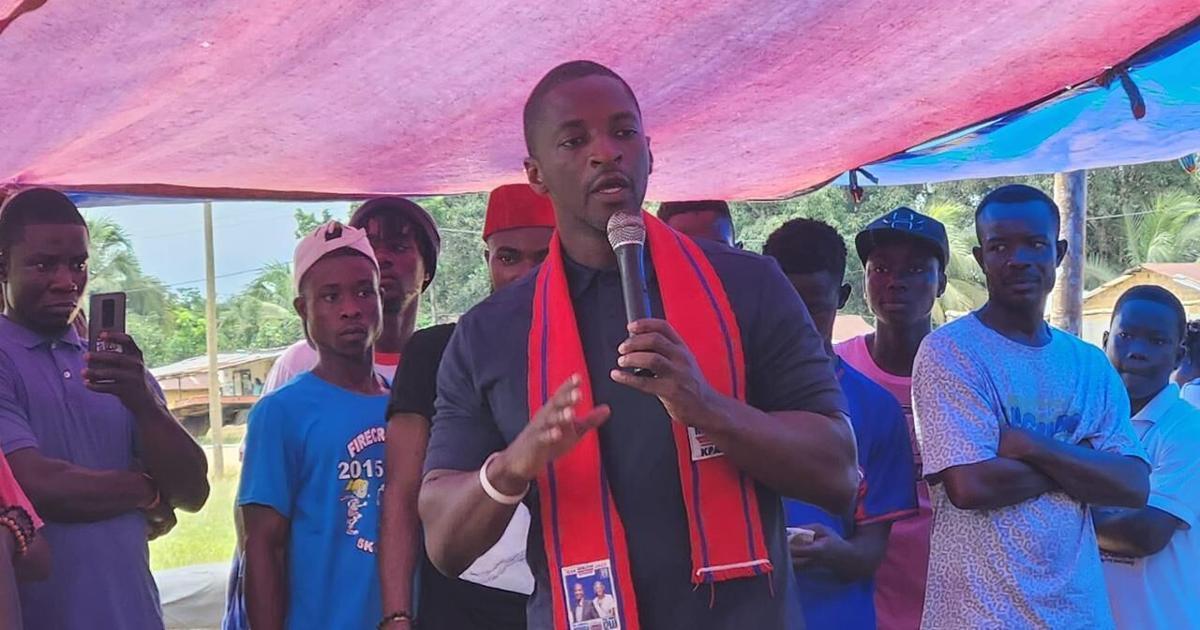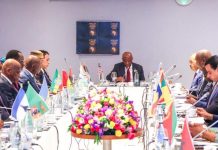Africa-Press – Liberia. Dr. Clarence Moniba, the political leader of Liberia National Union (LINU), has expressed views on the recently signed 2024 national budget, stating that it lacks transformative elements and is crafted as business as usual.
Dr. Moniba highlighted the significant pay disparities within the Liberian government, with low salaries for essential workers such as teachers, doctors, military personnel, and civil servants, while lawmakers receive significantly higher pay.
President Joseph Nyuma Boakai earlier this week signed the budget upon his return from the United States, where he attended the US-Africa Business Summit in Dallas, Texas.
This was after the House of Representatives had approved the fiscal year 2024 National Budget to the tune of US$738,859,827, an increase of 6.7 percent from the version submitted by the Executive through the Ministry of Finance and Development Planning.
The executive’s version submitted in March this year was to the tune of US$692 million. However, following a “rigorous” budget hearing that included consultations with revenue-generating entities, the Joint Committee on Ways, Means and Finance and Public Account of both the House and Senate uncovered additional projected revenue to the tune of US$46,451,000.
The decision to pass the budget followed a recommendation of the Joint Committee on Ways, Means and Finance and Public Accounts contained in a report submitted to plenary.
“Let us be straightforward to both the Executive and Legislative branches of government — the budget does not reflect true transformation and is crafted as business as usual. Salaries are still too low for our teachers, doctors, military, police, and civil servants, many of whom earn 200 dollars or fewer every month, while salaries, in comparison, are still too high for our lawmakers, who make 50 times more, at least eight thousand dollars per month,” Moniba said in a statement on Saturday. “If this pay disparity continues, we will continue to have individuals begging in the corridors of the Capitol Building, instead of working on farms, factories, and in classrooms.”
The LINU political leader emphasized the need for a budget that prioritizes the well-being of the people and focuses on essential sectors like agriculture, education, healthcare, infrastructure, electricity, and corruption eradication.
“When government expenditure on itself eats the biggest share of one of the smallest national budgets in the world, we as a nation will also continue to remain beggars, instead of leaders,” he said. “The international community and foreign investors will never take us seriously when we spend more money on vehicles for government ministers than we do on ambulances for the sick.”
He noted that it is impossible to transform a country when the agricultural sector is allocated 5 million, and the budget for 103 lawmakers stands at 40 million dollars.
“It is impossible to believe that we will one day send our children to modern classrooms and equip them for the future when the entire country does not have more than three science labs for our students–but the travel and entertainment budget for officials in government, is in the millions,” he said.
Dr. Moniba has, however, outlined several prescriptions for a prosperous Liberia, including the modernization of food production zones in each county, ensuring access to quality education with technical and vocational training programs, improving healthcare services, and expediting road infrastructure development. He also mentioned the provision of universal access to electricity through solar power, fighting corruption by holding accountable those who steal public funds, enhancing tourism and economic competitiveness, investing in sports infrastructure, and improving access to financial services for Liberians.
“Right now, we Liberians have to believe in a brighter future–in the hope of a better tomorrow,” Moniba said. “I would like to lay out principles of national development for A New Liberia — a path that this current Administration must follow if they are to bring about true transformation to better train, empower and improve the lives of Liberians.”
“We need to improve the lives of the security officers, sacrificing their lives on the streets of our country to maintain our precious peace; the underpaid civil servants still working to serve our nation and the farmers who are meant to feed our families,” he said. “We also need to improve the lives of the small business people who continue to grow our economy, our teachers who hold the key to unlocking Liberia’s great potential, and our nurses and doctors responsible for healing our nation.”
Moniba called for tangible policies to address poverty, inequality, corruption, and tribalism in Liberia. He stressed the importance of competent and patriotic leadership that prioritizes the nation’s development over personal gain.
Dr. Moniba’s vision for a prosperous Liberia emphasizes the collective effort required to build a better and more unified nation for future generations.
For More News And Analysis About Liberia Follow Africa-Press






